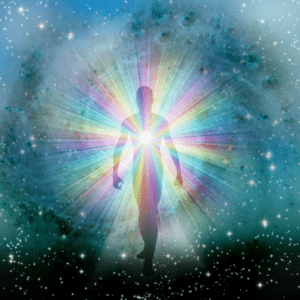This post is a compilation of excerpts from the book “A Handbook on Discipleship” by Swami Kriyananda.
Swami Kriyananda (1926 - 2013)
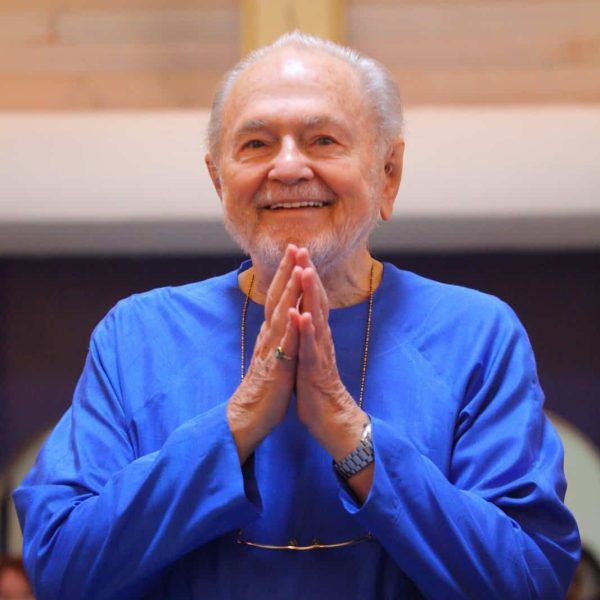
A Lifelong Disciple of Paramhansa Yogananda
Swami Kriyananda born as James Donald Walters in May, 1926 Teleajen, Romania.
During college years, he started the search for truth.
In the late 1940s he came across Paramhansa Yogananda’s most influential book Autobiography of a Yogi. After reading the book he hopped on a train and travelled all the way to California to meet Yogananda.
“I want to be your disciple” were the first words of Swami Kriyananda to Paramhansa Yogananda at his Mount Washington ashram in Los Angeles, California. Yogananda accepted him as his disciple.
Your work, Yogananda told Kriyananda is writing, editing and lecturing. There Kriyananda worked closely with Yogananda.
Many times the Guru told Kriyananda, “You have a great work to do”. It was not a praise but a serious commission to help bring Yogananda’s teachings into the world.
Over 60 years of his discipleship, Swami Kriyananda established several communities, as well as teaching centres and meditation groups all around the world. He also wrote many books, pieces of music and lectured worldwide.
Introduction
The guru-disciple relationship is perhaps the most important relationship the soul can have in this world of relativity. It is also the most important relationship the ego can have in the sense that it’s the one relationship that thoroughly demolishes the ego.
The worldly person, however, doesn’t see the attractiveness of this relationship; he doesn’t like to put himself in the position of subordination to what he considers to be just another person. He feels that his opinion is as good as anyone else’s.
In the matter of seeking God, he doesn’t see the need for another human being to intercede, but thinks to establish his own relationship with God directly.
It’s very important to speak not only of why we need a guru, but more particularly of how we can be good disciples. This is an even more difficult question, and one that, generally speaking, people don’t understand on a deep level.
A true disciple is not somebody who is always trying to proselytize others, or who goes around outwardly saying, “Oh, Master, Master, Master.” Neither is he somebody who acts as though he were a member of a special club. A true disciple, first of all, has to have the right attitudes that make him a good disciple. Increasingly he has to develop that kind of consciousness which the guru brings to him.
1. Discipleship to the Infinite

In the beginning, it’s absolutely inescapable that the disciple will see the guru only in human terms. After all, the guru has a body, a personality, an ego – all the things necessary to make a body function. But the guru resides in his own Self and watches these things. As Master wrote in his beautiful poem, Samadhi, “I, the cosmic sea, watch the little ego floating in me.” There has to be an ego, or the body couldn’t be sustained, but it’s a different kind of ego.
It’s not the ego of pride or of identification with an individual consciousness. In a sense, you could say there is no ego because the deeper meaning of ego is the soul identified with the body. A great master is not identified with the body at all. He merely sits back, watches, and directs it.
There was a period of time when I was out at Master’s desert retreat with him. Every evening after finishing that day’s dictation on his commentaries on the Bhagavad Gita, he used to go out for a walk with me. He would walk quite slowly because he was in a very deep state of consciousness. At this time he was manifesting the wisdom aspect of God, and was very impersonal. Sometimes he would rest his hand on my forearm for support as we walked along. Then he would stop, sway back and forth, and lean on me so he wouldn’t fall over. Once he said, “It’s so difficult to know which body I’m supposed to keep moving when I feel myself equally present in all bodies.”
It took great effort on his part just to hold his mind down to that little body. You might even say that it’s as difficult for a master to keep his mind down on our level as it is for us to get up to his, except he can make it and we can’t. But we must remember that we can. We must not constantly think of our limited humanity, but always inwardly think of our divinity. This is one of the attitudes that is so necessary for a true disciple.
2. The Need For Right Attitude
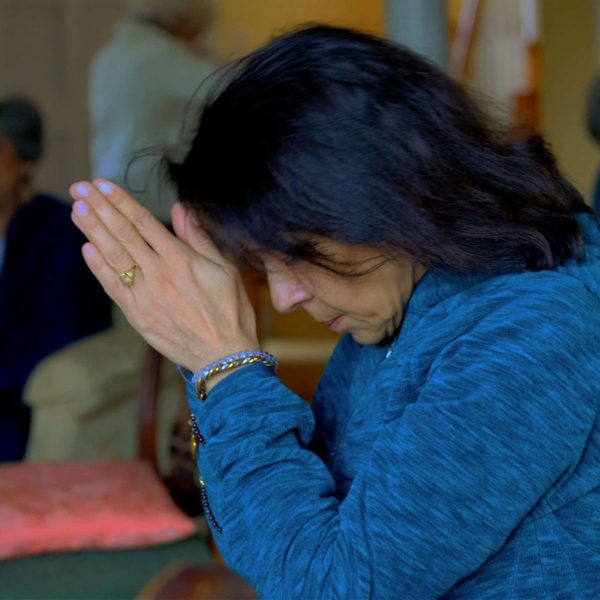
First of all, we need to develop attitudes of humility, of wanting to learn, of being willing to give up one’s own desires, of giving up one’s normal human tendency to justify oneself, to insist on being right.
Unfortunately, it’s all too common for disciples to act as if the guru were some sort of heavenly slave, always doing them little favors. You find this sort of person saying, “Oh, Master did this for me, or, Master did that for me.” They don’t understand what Master is. They reduce Master to the level of a human personality, when he is so much more.
I heard a story about a disciple of Master which was sweet in a way, but didn’t seem to me to express right understanding. This disciple was on a plane that began to have engine trouble and was forced to circle the airport several times. Fearing for the lives of all those on board, the disciple began to pray. Then he decided that he’d better not pray to Master because he had such a sense of humor he’d probably make them circle one more time before letting them come down. So he prayed to Babaji. Well, that is a cute story, but it doesn’t satisfy me.
Master did have a wonderful sense of humor, but people often treat him as though that was all he was: a wonderful person, a wonderful smile, a lovely sense of humor, a great love for people, and so on. He was all of that, but he was something so much more. Even in the midst of laughing with you, he had such depth in his eyes that it was like melting into an ocean to look into them. To say he was this, or that he was anything, is to sell him short. He was everything. He was so above it all that the only way to really be a true disciple was to try to be that, too. There was no separation between him and us, but it was much more than that – he was in our hearts already. He knew everything we thought. He knows everything you think right now. He showed this to us again and again. How one man could know every single thought of every one of his disciples was always beyond imagination to me, but he proved it to us again and again. He said, “I know every single thought every one of you is thinking.” How are you to be a true disciple of someone like that?
3. Letting Go Of The Ego

The first step in becoming a true disciple is to be a proper human being – that means relinquishing those things that prevent one from attaining the state of consciousness of the guru.
What is a human being in its improper human state? First of all, it clings to that state. It says, “I am real. My body is real; my personality is real; my ego is real.” Secondly, it says, “I am more real than anyone else. If they suffer, I don’t feel it. If I suffer, however, I do feel it.
Therefore I am more real. When I am happy, I feel it. When other people are happy, I’m happy for them, but in a different way!”
It is that the ego is willing to set itself in opposition to other people. It’s willing to take things from others, and to do things that may hurt them, so long as it helps itself. This kind of person gets into the competition, warfare, struggle, and suffering that is part of the ego-centered consciousness. He upholds his own desires and their fulfillment at all costs. He doesn’t want to set himself into submission, into discipleship to another human being. After all, this is diminishing the very thing that is most precious to him – the sense of separate identity.
To be a true disciple, we need also to have the attitude of openness to the guru, to be willing to be corrected at any time.
We have to be disciples as much at the end of the path as we were at the beginning.
Once Master said to Rajarsi (his most advanced disciple), who had already attained nirbikalpa samadhi, “Don’t forget where your power comes from.” Though he was a multimillionaire, as well as a highly advanced yogi, Rajarsi said, just like a little boy, “I won’t Master. It comes from you.”
The love that you find between the master and the disciple, when the disciple has gotten out of his ego and there is only God sharing with God, is so sweet and beautiful.
We would see Master and Rajarsi walking around the grounds hand in hand and just gazing at everything with such wonder because they were seeing God there.
To be a true disciple, we must be open to life, open to truth wherever we find it. In that way, we find many opportunities for growth. In that openness which is true humility, we find that we can learn from the stones, from the clouds, from everything.
4. Tests For The Disciple

The way of the disciple is not easy. The guru asks things of us that are not convenient, and the ego goes through certain tests because of this.
Every devotee on the path goes through the same basic tests, though each one will have his own individual challenges as well. The first is negativity. Invariably it happens when you first come onto the path that someone tries to turn you away from it. Someone will say negative things, and you start to listen. Either you are swayed towards this negativity, or you resist and say no.
Once Master’s own father was starting to say certain things against Sri Yukteswar. Master cut him off, saying, “Of all things! Human birth is something, but divine birth is everything. If you ever say one more word against my guru, I will disown you as my father.” From then on his father never said a thing against Sri Yukteswar. Everybody goes through this test in one way or another. It’s just part of the path. It’s part of delusion’s effort to pull you back.
You can tell if something is the pull of delusion or not by the kind of consciousness you develop from it. Does it give you peace? Does it give you joy? Or does it undermine that peace and joy? Those things that are from God help to develop more divine states of consciousness. Those that are born of delusion take away that attunement and destroy it.
People who follow the negative path don’t become more peaceful or more in tune, but lose their attunement and fall back into egotism and selfishness.
The next test that comes along is a certain rebelliousness. The disciple thinks, “You are asking too much of me. I am not going to do that much. I’ve got my life to lead, too.” The disciple doesn’t want to be asked to give up everything because that doesn’t seem fair. So, in reaction, he rebels.
The third test is the thought, “What the guru is saying may be right for him and for a few others, but he doesn’t understand me and my needs.”
Sister Gyanamata, Yogananda’s most advanced woman disciple, came to him as a very old woman, quite frail and ill. So great was her dedication that, though her body was very sick, she would unceasingly run up and down the stairs of Mt. Washington serving her guru. It didn’t matter to her because she never thought about herself. A couple of disciples said to her, “You’ve got your own will, too. You shouldn’t just make yourself a slave to his will.” She replied, “Well, I’m a little too old now to change. Furthermore, I have never known such happiness in my life as I do now being in tune with my Guru.”
5. Tuning In To The Guru’s Will
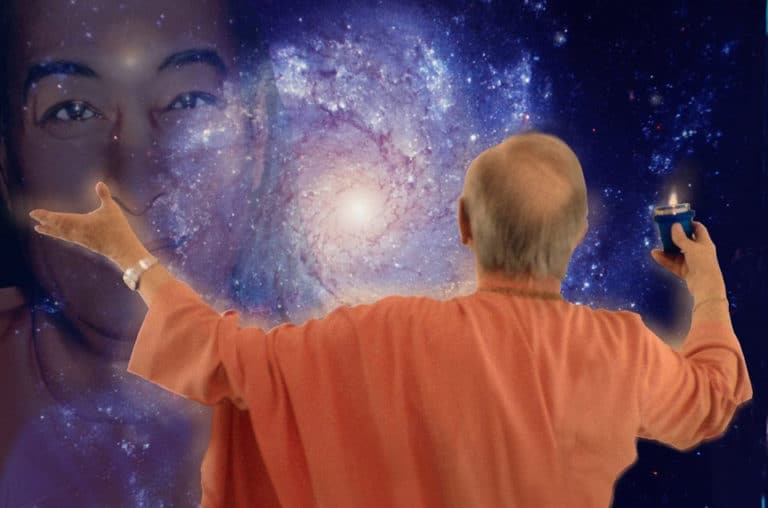
It’s inevitable that you will get some of these tests, but the way out of them is to be a good disciple. This means always trying to attune to the guru’s will, always trying to do what the guru wants.
The guru’s will is expressed in various ways. Even while Master was with us in the body, his will was expressed more inwardly than outwardly. Very often he would express himself outwardly in a way that would completely confound reason. An example of this was when he gave me the job of editing his Bhagavad Gita interpretations. My assigned task was to “edit” the magazine articles that appeared in the 30’s and 40’s. He said, “Work like lightning; there’s no time to be lost. But, don’t change a word.” How I was to edit and not change a word, I never did figure out.
He would throw you such curves that sometimes you just didn’t know what he was talking about. The reason was that he wanted you to go inside and understand inwardly what he wanted. I don’t mean that he never gave specific outward advice and instructions. Of course he did, but more than that he wanted you to understand with your consciousness.
There was one disciple that Master was scolding about something, and the disciple said, “Yes, Master, I know. I understand what you are saying.” Master said, “You don’t understand. If you understood, you’d do what I’m saying.”
The fact is that knowing the words and understanding the concepts aren’t enough. Master was trying to get his consciousness into our consciousness so that we would really understand him, and then act.
Until we are able to act in attunement, until that real understanding is reached, we are not obeying even when we go through the outward motions, because it’s a superficial thing.
6. Loyalty – The First Law of God

The most important aspect of being a true disciple and overcoming the tests on the path is the commitment of loyalty – the commitment of trust.
Master said that loyalty is the first law of God. Even while he was living, many disciples would go rushing from one teacher to another, but they didn’t get God.
One has to be loyal to one’s way, to the way God has sent. By doing this, loyalty becomes such a direct pipeline to the spirit that we’re totally absorbed in that vibration.
Many disciples will think, “I’ll take so much of the guru’s teachings, but no more.” We have to make as our very first premise an acceptance of what he said.This has always been my guideline since I first came onto the path. I was so new, I didn’t know anything. A week before I came to Master, I had never even heard the words “guru,” or “yoga,” or “karma,” or any of the things we take so much for granted now. When I came I was in a state of mental turmoil with all the new thoughts being thrown at me right and left by disciples who took them for granted.
The only way out for me was to have absolute faith in Master’s integrity. Sometimes what the other disciples said didn’t make any sense, but I would ask, “Did Master say it?” If the answer was yes, then I’d accept it. If it wasn’t, then I’d battle it out. We must have this as our starting point, if we’re going to be good disciples.
There may be things that other teachers say that seem contradictory. This is part of the realm of relativity – that you cannot say anything without excluding some things that are perhaps equally as true. So it is necessary to follow one guru. They are all saying basically the same thing, but they put it in different ways, which to our limited understanding doesn’t seem the same. Again this is why it is necessary to follow only one way. Otherwise you have your feet in two boats, and you fall in the middle and drown. I’ve seen this happen to devotees if they read too much of different spiritual teachings.
There are certain things that different great ones said that, to the beginner’s understanding, seem conflicting.
I remember a beautiful thing that a great saint in India once said to me. I had questioned him about something he had said that seemed to contradict Master. He said, “If all the disciples of masters really understood their masters, there wouldn’t be all the quarreling that you find in religion.” In other words, he wasn’t really saying something different from Master. It merely looked that way to me because I hadn’t yet understood on a deep enough level. Until there is that level of understanding, commit yourself to one way.
7. Discipleship Means Giving Everything to God
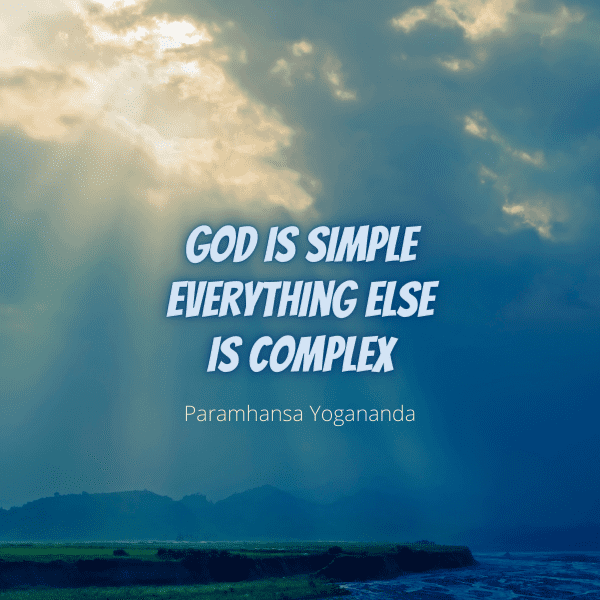
As well as tests, every devotee goes through ups and downs on the path. During his ups there are times when he feels as if God were practically a hair’s breadth away. He only has a bit further to go, and he’ll be there. Everyone goes through such periods where he feels so in tune that he’s really, as it were, just racing towards heaven. Then all of a sudden that quality is lost, and the clouds roll in again, and he wonders whatever happened.
We can understand it this way: as soon as we get a divine state of consciousness, the strength of delusion is such that we take the blessing to ourselves, and think that we’re special or important. We get a little experience of God, and instead of expressing appreciation, we start to think, “Oh, I’ve got something now. I’m someone special now.” The ego comes in again, and because of this we come crashing down and have to begin all over again.
The way out is for all our energies to always be directed towards God. The true disciple is always thinking only of how he can serve God and guru more, of what more he can give. If the devotee starts to think of how he can get more experience or more realization, then he falls back into delusion. It has to be a constant giving, and in that giving, God can give us more. It’s like a closed circuit that builds up greater and greater power.
We have to become empty vessels, to drain ourselves of that which is human in order that the Divine might fill us. So it is that we must get away from thinking of our relationship with the guru in a purely human way. The guru is omnipresent. As true disciples, we should try to become omnipresent like him.
A true disciple should not be thinking of just himself and the guru, or of the guru as a human being who resides in time and space. We should think of ourselves in a more impersonal way. We should try always to develop those inner qualities to such an impersonal degree that our love is no longer the love of a human being for another human being. It’s the love of the Infinite for the Infinite, of the Unknown for the Unknown, or as one great saint said, “Of the Alone for the Alone.” We are always alone in this universe. There is nothing, in the last analysis, but you and God. Everything else is only a way-station along the way. As Master used to say often, “I killed Yogananda long ago. No one dwells in this temple now but God.”
We are not just humble little devotees stumbling along making mistakes. We are that Infinite Light. We are that Infinite Wisdom. We are that Divine Soul. Master’s mission was to show us that we are that. Until we achieve that realization, we will not have fulfilled to perfection this most wonderful of all relationships – the relationship of the guru and the disciple.
Note: “A Course On Discipleship” is a part of the Kriya Yoga Home Study Program. Kriya Yoga the path of Self-Realization.


